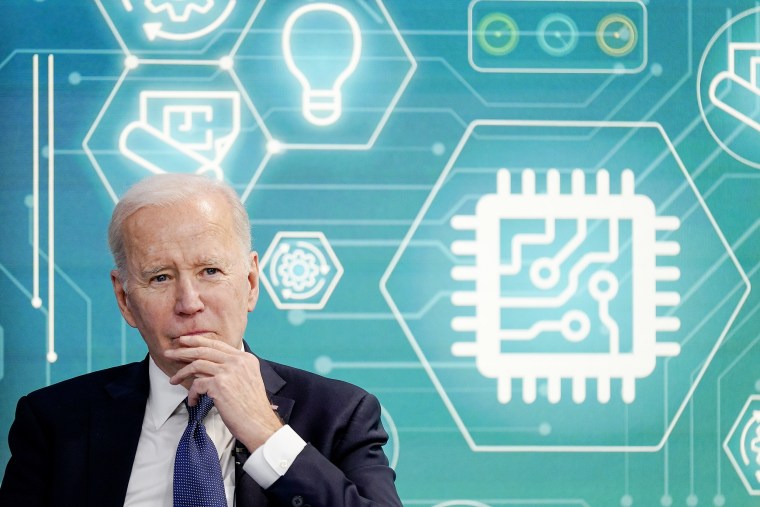In recent memory, no piece of legislation has been known by more names. It was called the Endless Frontier Act. And the U.S. Innovation & Competition Act. Which was followed by the America COMPETES Act. Then the CHIPS Act. Make that the CHIPS-plus Act. This week, Senate Democratic leaders said it had yet another name: The Chips and Science Act.
Today, the bill can be called something else: A bipartisan measure that managed, after a year of effort, to actually pass the Senate. NBC News reported:
The Senate on Wednesday approved a sweeping package aimed at boosting domestic production of computer chips and helping the United States stay competitive with China.... “Are we on the brink of another generation of American ingenuity, of American discovery, of American leadership? By passing our Chips and Science bill today, the Senate says, ‘Yes, we are,’ and in a loud bipartisan voice,” Senate Majority Leader Chuck Schumer, D-N.Y., said on the floor before the vote.
As the dust settled, the final tally was 64 to 33, with 17 Republicans voting with the Democratic majority. (The only member of the Democratic conference to oppose the bill was independent Sen. Bernie Sanders of Vermont.)
At the heart of the bill are new resources designed to encourage semiconductor companies to manufacture chips in the United States — a step some tech giants, including Intel, have said they’d take if the legislation passed.
A Wall Street Journal report added, “Right now, most chips are built abroad, which backers of this legislation say opens the U.S. up to security risks and supply-chain delays. The fund is for technology companies to build, expand or modernize facilities, as well as continue exploration and testing. The bill also creates a 25% investment tax credit for companies that invest in semiconductor manufacturing to further incentivize U.S. companies.”
As for the latter half of the bill’s name, the same legislation makes significant new investments in science and technology research, including $81 billion for the National Science Foundation.
None of this, in case you’re curious, was paid for with tax increases or spending cuts: The bill was deemed a “national security” matter, which led most senators to disregard potential concerns about the budget deficit.
If regular readers are asking, “Wait, isn’t this the bill Mitch McConnell threatened to kill as part of a clumsy hostage strategy?” the answer is yes. As for how it passed anyway — with the Senate minority leader’s backing — Politico had an interesting report on this:
After McConnell’s threat, Schumer called an all-senators classified briefing with Secretary of Commerce Gina Raimondo on the national security risks of reliance on foreign semiconductors. Multiple senators said afterward that the presentation was concerning and convincing, and Schumer said it was then that McConnell softened his position.
The New York Democrat added that he “must have called 100 CEOs,” including the heads of Ford, Intel, and “people we are not always working with” like the Chamber of Commerce and Business Roundtable — two big business organizations that typically support Republican causes.
“Everyone understood how important this was,” Schumer told Politico. “They called Republican senators and said you’ve got to do this, and they helped get us the necessary number of Republicans.”
The bill now heads to the Democratic-led House, where it will face some opposition from the left, though it’s expected to pass anyway with some GOP support.
House Republican leaders plan to oppose the bill when it reaches the floor later this week, but they don’t plan to whip members ahead of the vote.

